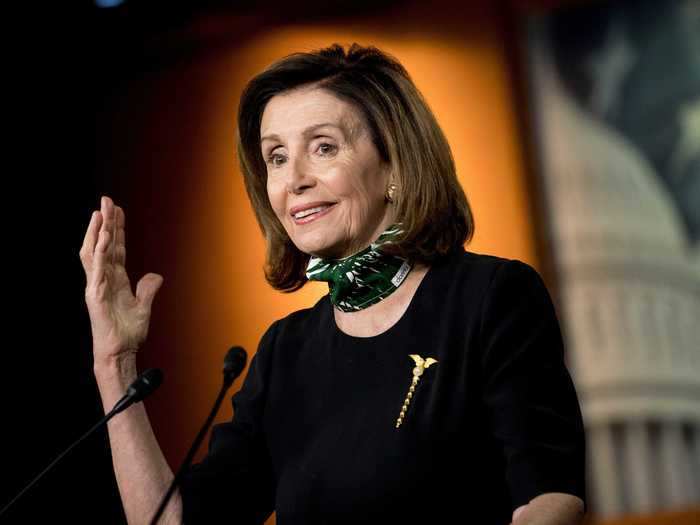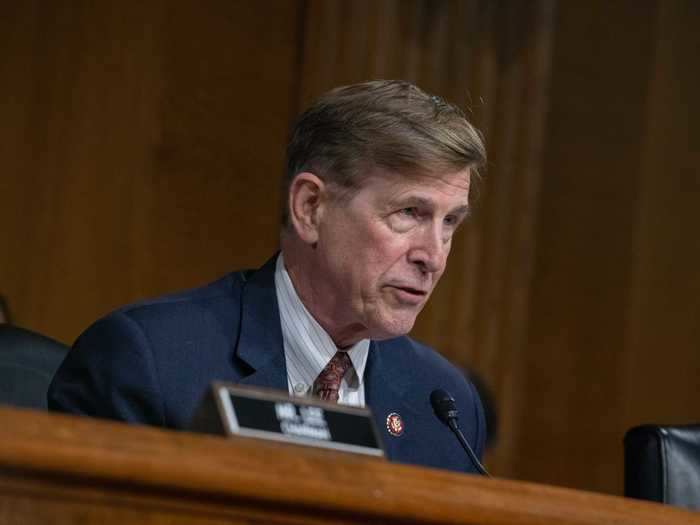FILE PHOTO: The spread of the coronavirus disease (COVID-19), in FayettevilleReuters
- Over 40 million Americans are out of work due to the coronavirus pandemic, a record high.
- Democrats and Republicans are split on how to address the historic unemployment crisis.
- Ideas include extending ramped-up unemployment benefits and paying people to return to work.
More than 40 million Americans filed for unemployment over the last three months. The unemployment rate as of April stands at nearly 15%.
Early on in the crisis, Congress authorized a $600 boost in weekly unemployment payments to tide over a surge of people who either lost their jobs or were furloughed. But that benefit is set to expire on July 31.
The approaching end-date is setting the stage for a fierce debate among lawmakers over how to mitigate the economic fallout of the pandemic and preserve vanishing jobs. Democrats want to extend those ramped-up payments into next year.
Read more: A proprietary Bank of America indicator points to 20%-plus gains in the stock market over the next year. Here's what the firm recommends buying now ahead of the rally.
But Republicans argue the increased benefit disincentivizes work since it allows half of the labor force to collect more on unemployment than at their old jobs.
Here are three proposals that could form part of the next coronavirus relief bill.
Extending the $600 boost in weekly unemployment benefits through the end of January.
House Speaker Nancy Pelosi.
Associated Press
In the Heroes Act, Democrats sought to extend the beefed-up unemployment payments until January 2021 to continue shoring up the finances of jobless Americans.
The unemployment rate will hover around double-digits for the rest of the year, according to the nonpartisan Congressional Budget Office. It also projects that unemployment will average 10% in 2021.
Regular unemployment assistance on average covers around half of workers' average pay. The boosted payments, though, allow many low-wage workers to earn more while out of work than they did at their old jobs, a trend that's caused blowback from Republicans.
GOP Senate Majority Leader Mitch McConnell called it "a crazy policy" in a call with House Republicans late last month.
But abruptly ending the $600 federal benefit without any replacement would lead to a 50% to 75% pay cut for millions of struggling workers, experts say — and the prospect of a surge in hiring anytime soon is slim.
Tying unemployment payments to the state of the economy.
Rep. Don Beyer.
Courtesy of Rep. Beyer
On the Democratic side, there is growing support to connect the size of unemployment payments to the nation's economic health through automatic stabilizers.
Rep. Don Beyer, who serves as vice chair of the House Joint Economic Committee, previously said in a statement to Business Insider that he supports the move in a bid to shield Americans from "hunger, homelessness, and poverty."
As the country recovers economically, weekly benefit checks would be gradually scaled back from $600 to $300 in the Beyer proposal.
Many Democrats back the plan, including Sen. Michael Bennet of Colorado. But the move was initially shot down in the $3 trillion House spending package due to its substantial cost.
Implementing a "return to work bonus" for unemployed people.
GOP Sen. Rob Portman of Ohio
Spencer Platt/Getty Images
Some Republicans are starting to support the idea of paying people to return to work.
Sen. Rob Portman of Ohio unveiled a plan last month to pay $450 a week for workers heading back to their old jobs or new ones.
"This return-to-work bonus would put additional cash in the hands of individuals who lost their hands due to the health crisis, which should provide additional stimulus to the economy that's experiencing historic declines in consumer spending," Portman said in a speech on the Senate floor.
"This incentive for people to get back to the workforce and get our economy running again is exactly the kind of policy we should all want," the Ohio senator said.
Recently, Rep. Kevin Brady, a top Republican in the House, also introduced a plan to offer a $1,200 hiring bonus on Monday. It's equivalent to collecting two weeks of ramped-up unemployment.
Larry Kudlow, National Economic Council director for the Trump administration, said of the idea of a return to work bonus: "It's something we are looking at very carefully."



